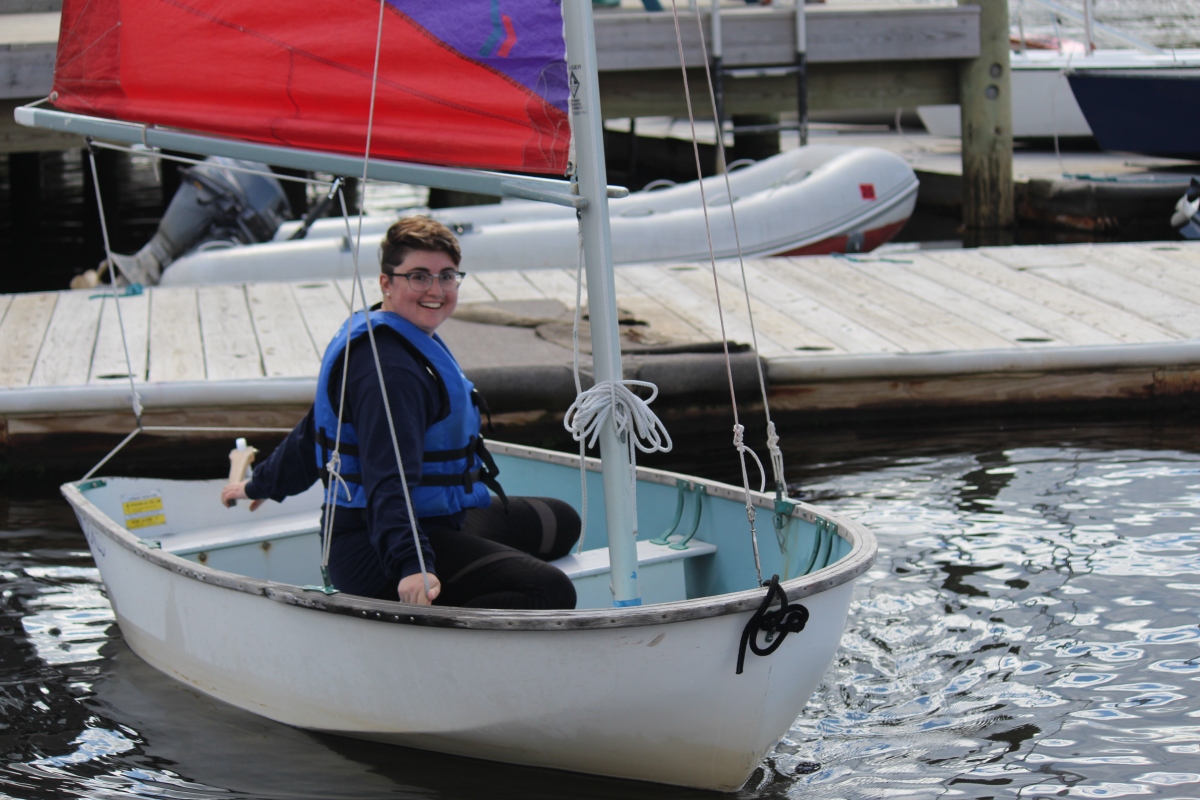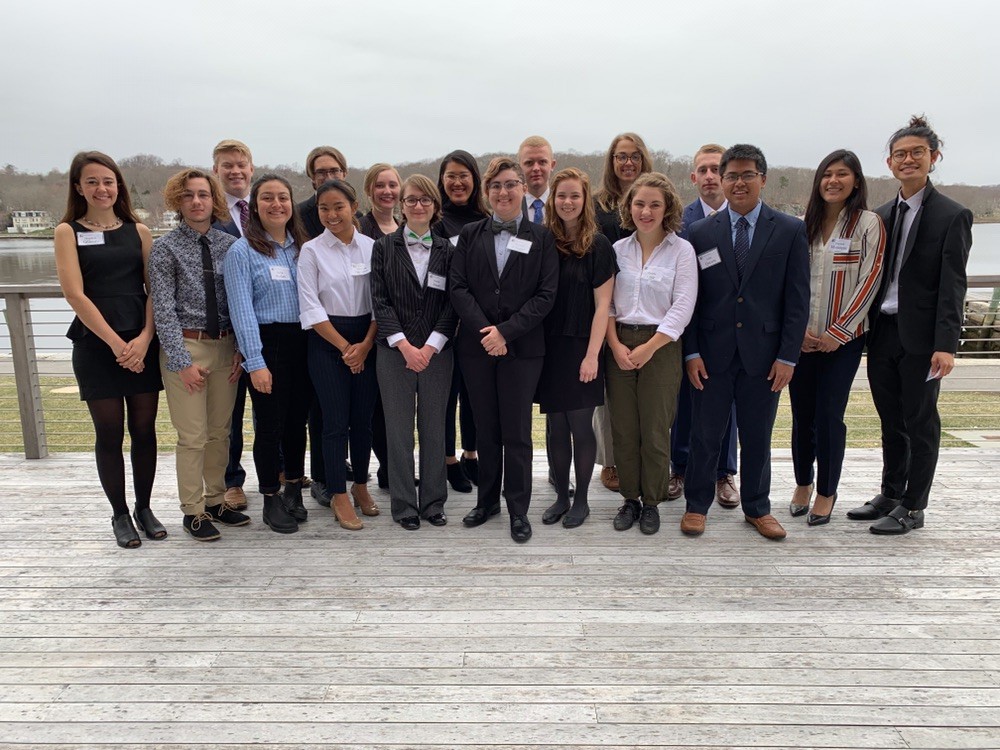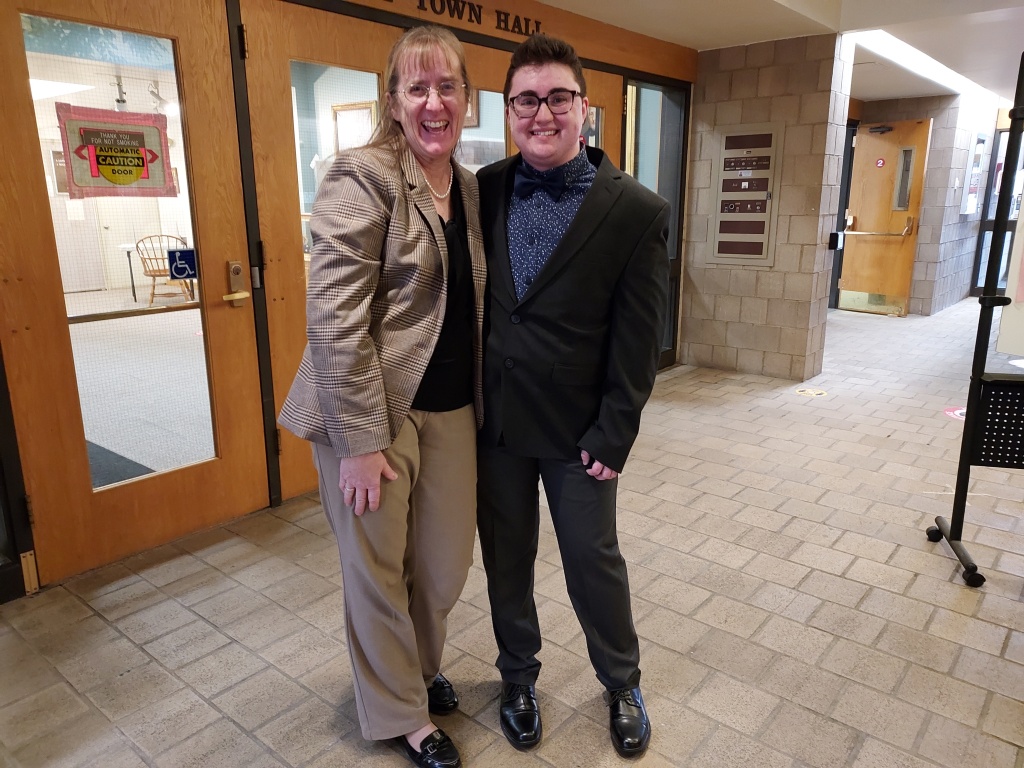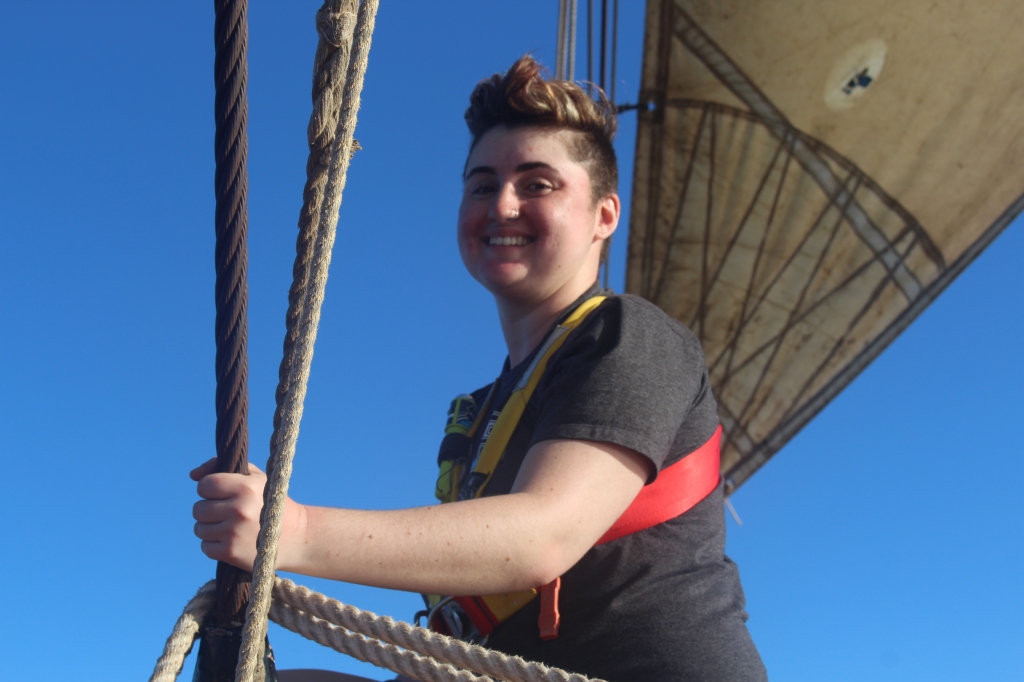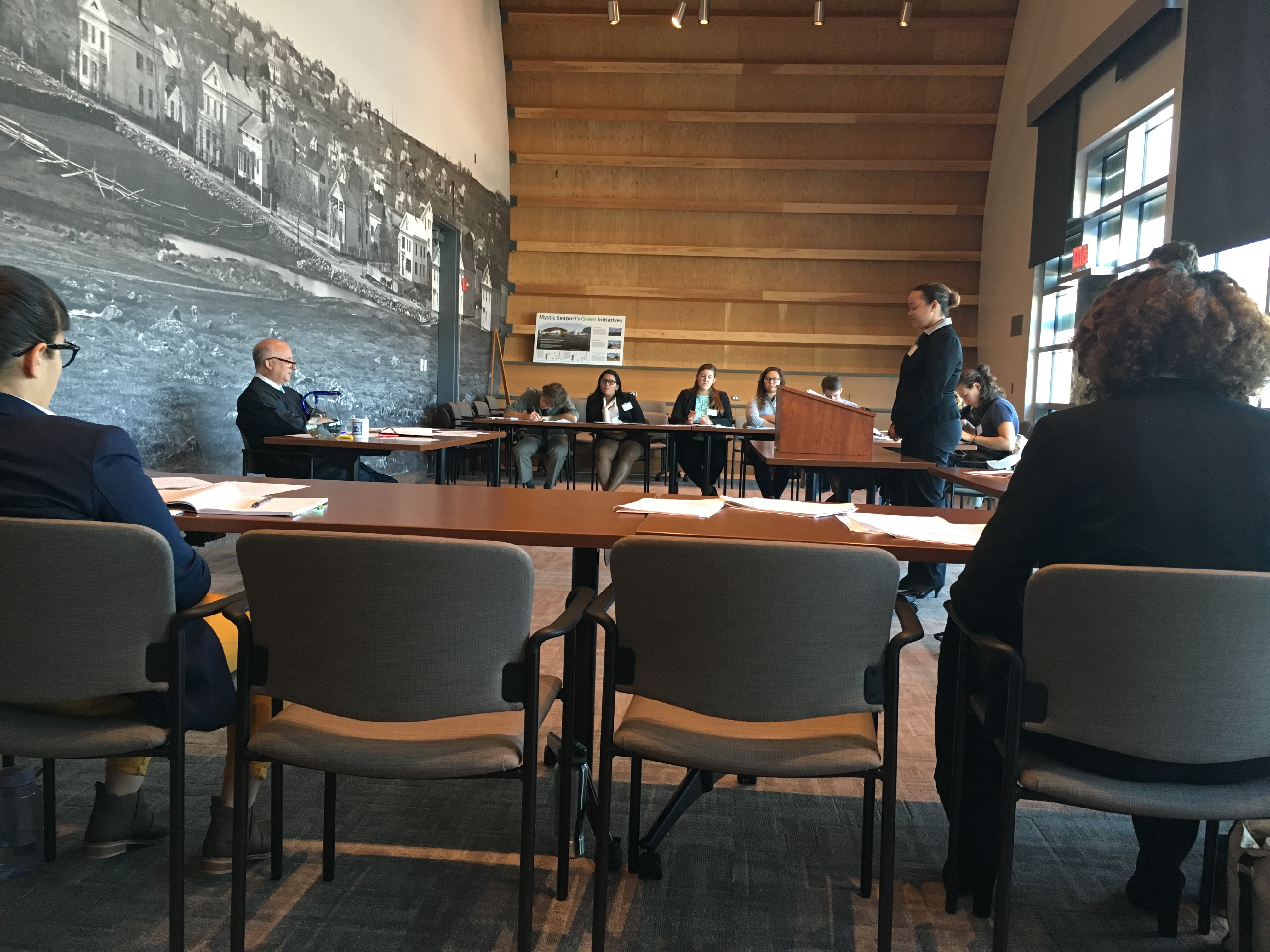by Evan McAlice, Assistant Director of Admissions & Communications
If there is anyone who represents the transformative nature of a Williams-Mystic semester, it’s Samuel Filiaggi, who joined us in Spring 2019 as a senior at the University of Rhode Island. Samuel came to Williams-Mystic anticipating an adventurous sendoff to his college career, but what he found was so much more. In addition to adventure, Samuel found a welcoming community, an enriching educational experience, and a new outlook that changed the course of his life.
“With it being my last college semester, there was a lot of life transition that I was going through, and I found a lot of support here,” said Samuel.
Despite taking law courses at URI, Samuel did not initially see a career in law in his future. That all changed, however, after spending a few weeks in Katy Robinson Hall’s Marine Policy course. Samuel saw the ways law applies an interdisciplinary approach, and how there were ways to use his background in Marine Affairs to inform the legislature. Pretty soon, the progression to law school – something he could not have imagined doing years ago – began to feel more and more natural.
“What really attracted me to Marine Affairs at URI and then to Williams-Mystic was just how interdisciplinary it is, and how important it is to take different perspectives from different fields and have it synthesized to make effective policy,” said Filiaggi. “The more I learned about law and looked into law schools and what their approaches are, the more I realized it’s the same.”
Samuel cites his experience in Moot Court as the moment the lightbulb went off. Due to a number of outside forces, Samuel ended up being the only person in his group to argue one of the three major facets of the case. With the help of his fellow shipmates, Samuel rose to the challenge and absorbed the material, discovering a new set of skills he did not know he possessed. After talking with the presiding judge at the post-court luncheon, he was encouraged to apply that same perseverance to all aspects of his life.
This appreciation for law and policy was nurtured throughout the semester by Katy Robinson Hall, who immediately bonded with Samuel over their shared Rhody alumhood. Fun fact, Samuel was actually in URI’s marching band at the same time as many of Katy’s children!
“Meeting Katy was like meeting a version of myself that I wanted to be when I grew up,” said Samuel. “With the work she has gotten to do, and the impact she has had in both the courtroom and the classroom, I knew that was somebody I wanted to keep a relationship with.”
Katy proved to be a valuable resource during the law school application process, writing him a wonderful letter of recommendation, but that’s not where the story ends. During that same correspondence, Katy inquired about the possibility of petitioning for a gender-affirming name change for Samuel. On February 24, after months of planning and paperwork, Samuel and Katy stood in court together as the name change became official.
It was a full-circle moment for Samuel, as his Williams-Mystic classmates were the first people he introduced himself to with his new name and pronouns. The experience exemplified the welcoming community Williams-Mystic can foster in just one semester, and how our faculty will continue to advocate for students long after their semester ends.
“Katy was a massive help with navigating the probate court,” said Samuel. “Having somebody there who understands the intricacies and unwritten rules of probate court that the layman does not have access to definitely left an impact on me.”
Beginning in the fall, Samuel will be attending the Roger Williams University School of Law. Samuel hopes to study marine and coastal law at Roger Williams through the school’s Marine Affairs Institute, which is partnered with Rhode Island Sea Grant.
Samuel plans to apply an interdisciplinary perspective to his law classes, and use the knowledge he developed at Williams-Mystic across many fields to become an effective advocate and lawyer. At Williams-Mystic, Samuel learned the ways in which narrowing his focus to one specific discipline can limit his potential. Instead, he hopes to synthesize all of his interests and skills into his law career in order to approach problems from unique perspectives.
“Some of the best lawyers are people that are creative and can take different approaches to prove their point beyond the conventional track,” said Samuel. “Having an interdisciplinary effect will definitely strengthen my practice if I can utilize different tools to get my point across, and hopefully make a difference.”
For students that are considering a semester with Williams-Mystic, Samuel encourages them to use this as an opportunity to explore and hone their interests. Particularly for students who are interested in pursuing law, he hopes students will continue to use the resources and knowledge provided to them by the program.
“You are more equipped and gifted than you could know,” said Samuel. “Keep trusting in your skills, honing your skills, and keep connecting with your professors and shipmates.”

